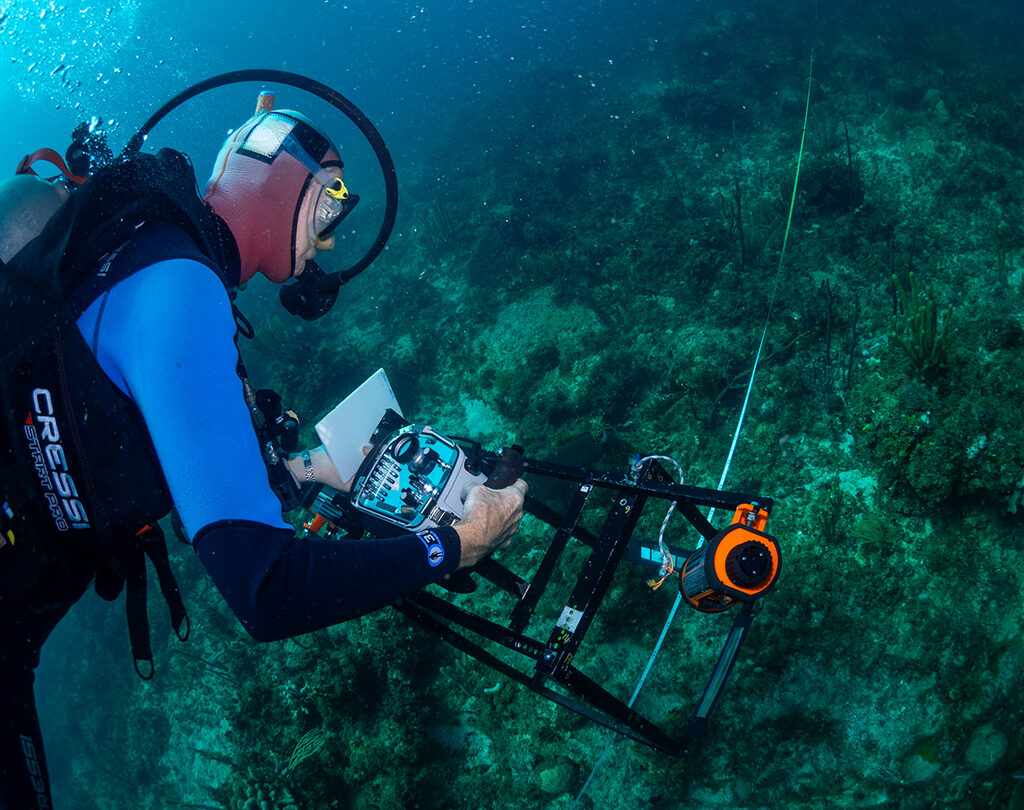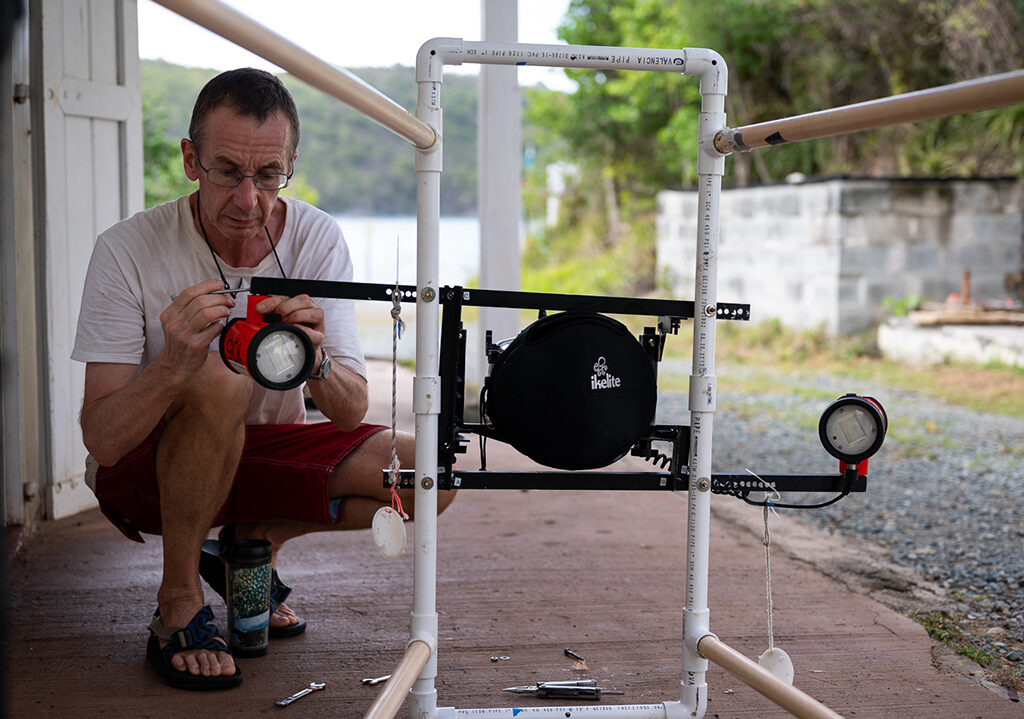
Media Contact: Carmen Ramos Chandler, carmen.chandler@csun.edu, (818) 677-2130
The catastrophic trauma caused by hurricanes and major incidents such as bleaching and disease have clearly contributed to the precarious health of the Caribbean’s coral reef communities.
California State University, Northridge marine biologist Peter Edmunds has been able demonstrate, with data meticulously collected over nearly 40 years along the coral reefs off St. John in the U.S. Virgin Islands, that those “acute” events, combined with the “thousand cuts” caused by rising ocean temperatures are damaging the marine ecosystems that once helped corals thrived.

“My work extends over the course of four decades in which the reefs were impacted by multiple acute events,” said Edmunds, who teaches in CSUN’s College of Science and Mathematics. “Yes, acute disturbances are associated with reductions in coral cover, which supports the common narrative that the degradation of many reefs has been driven by ‘acute’ events. Acute events, such as hurricanes and bleaching, have conspicuously killed corals in St. John and throughout the Caribbean, but my data show the extent to which long-term changes in the composition of the coral community has been associated with both acute and chronic disturbances. Instead of accounting for the demise of coral reefs solely by acute events, causation is complex and akin to a ‘death by a thousand cuts.’”
His findings, “Decadal-scale time series highlight the role of chronic disturbances in driving ecosystem collapse in the Anthropocene,” recently appeared in the leading international journal Ecology.
Edmunds is one of the few researchers who has spent each year for the past four decades chronicling coral reef marine ecosystems. In his case, the coral reefs off St. John. In addition to testing and taking samples of the ocean water, sea life and vegetation, he has also used underwater photography to compile records of what is happening to the reefs over 40 years.
He said his more than 13,000 pictures of these reefs extending over 38 years “provide the closest we have to a “time machine” with which we can grasp how the biological world has changed.”
“Some changes to the coral ecosystem can be quite obvious, for instance the destruction and devastation following a major hurricane,” he said. “But others are only noticeable if you closely look at the same area over a period of time.
“While the devastation from a hurricane can be seen immediately,” Edmunds said,” the gradual changes caused by slowly but consistently rising ocean temperatures can only truly be noted if you know what was there in, say, 1989 and can see that it is no longer there, or has changed, in 2009. To notice that change, you need consistent data that you can verify and use to answer clear questions.
“It’s easy to overlook that chronic effects of temperature on reef corals when the damage from acute events like hurricanes can be so dramatic,” Edmunds said. “But if we are going to stave off or at least mitigate the deaths of our corals, then we also need to be aware of the ‘thousand cuts’ being inflicted with he passage of every month and year
He pointed out that not only are the futures of coral reefs in jeopardy, so are the human communities that rely on them for their livelihood and enjoyment — from the tourism and fishing industries to beachfront homeowners.
Edmunds’ four-decades of data on the state of marine ecosystem of coral reefs in the Caribbean has given marine biologists and other researchers around the world vital information as they try to understand and perhaps come up with ways to mitigate the impact of rising ocean temperatures caused by climate change.
While the situation looks dire for the future of coral reefs and other marine ecosystems, including those off St. John, Edmunds argued in an article, “Why keep monitoring coral reefs?”, for Oxford University Press’ journal BioScience that it is important for researchers to continue gather yearly data about the state of the world’s coral reefs.
“Because the past is an imperfect predictor of the future, monitoring coral reefs remains an important endeavor,” he said. “It offers the only opportunity to understand how reefs will continue to change, to connect patterns of change to the processes causing them to occur, and to create opportunities for management to best ensure their future.”




Comments are closed.